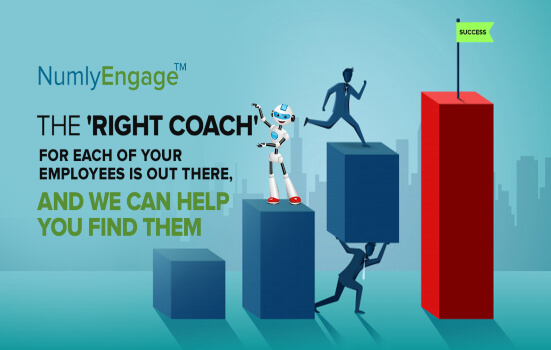Workplaces are changing faster than ever before, and key priorities of the C−Suite are changing along with it.
− Most CEOs are now focused on making their organization agile and adaptable to change and rapid transformation.
− They want to improve their decision−making capabilities and the power to execute those decisions promptly.
− They want to come up with ways to attract and retain top talent.
− They realize that having a strong corporate culture is the key to manifest all these aspirations into reality.
− They need capable employee engagement programs to drive productivity and improve employee retention.
Managers are the crucial cogs in the wheel of employee engagement initiatives. It can be safe to say that employees can hardly reach elevated engagement levels all on their own. They need a work environment that encourages and enables commitment, and they need managers to help them become engaged. If a manager himself/herself is not engaged, then to expect an engaged team can be tough.
Why do managers matter in the employee engagement narrative?
Employee engagement can be defined as the extent to which employees feel passionate about their jobs and are committed to the organization’s goals and are willing to put in discretionary effort.
Effort that is put in when no one is looking happens when employees have a high degree of accountability and ownership towards their jobs. And managers are the people driving this.
Employees reporting to managers who create a respectful and trusting relationship with their team members will be more engaged, more willing to put in additional effort, and go the extra mile. As the saying goes − People don’t leave their jobs. They leave bad managers.
Some might argue that the decision to leave a job might just be to quit the job − not the boss. They are likely to jump ship if the work is not enjoyable or if their strengths are being underutilized or if they are not growing as expected in their careers. But who is responsible for the ‘job’, the opportunity, ensuring that career paths are well designed, and employees and team members are exploring the full gamut of their potential? The managers.
So, if you do not have managers who are engaged, it is likely that the team under them will also not be.
− Research shows that engaged managers have a 50% higher−than−expected level of fully engaged employees and half the expected percentage of disengaged employees.
The Gallup State of the American Manager: Analytics and Advice for Leaders report shows that managers account for at least 70% of the variance in employee engagement across business units.
Given that teams are composed of people with diverging needs related to motivation, morale, and clarity, and that the root of performance variability lies within human nature, manager engagement and employee engagement become directly proportional.
Employee engagement Vs. manager engagement
The organization proclaimed, “You shall now be engaged,” and so the employee was.
Unfortunately, employee engagement does not work this way. Employee engagement is all about creating the right set of conditions that allow engagement to thrive. Just like how a manager is responsible for creating those conditions for her team members, the same environment must also be created for her.
To have engaged managers, organizations have to understand the motivators of engagement . Further along their career path, managers are people who will be motivated by salary but will be motivated more by opportunity. The opportunity to do more, to nurture careers, to create an enabling environment, to take on tasks that deliver greater value and impact, are some of the motivators. Managers are also intermediaries between senior leadership and frontline employees. This makes their work narrative significantly different from regular employee engagement.
Manager engagement programs − what to do differently?
Manager engagement programs have to be value−driven. While organizations have to take care of elements like technical dexterity to ensure that their managers stay on top of their technical game, it is power skills that they have to focus on heavily.
Power skills, previously called soft skills, are highly complex skills. Skills like empathy, flexibility, communication, innovation, curiosity, decision making, critical thinking, and such fall under the purview of power skills. It is these power skills that can bring transformative value to the manger and then trickle down to the team and consequently to the organization.
Engagement programs for managers have to focus on elements that help them bring out the best in their teams. Be it identifying high−potential employees or the brilliant jerk in the team or assessing the kind of help team members need in their journey to build their career paths, managers need the organization?s assistance to build themselves in order to build their teams.
After all, managers today are dealing with millennials and GenZ at work, and have to have the emotional capacity to connect with each of these generations and their motivators. These engagement programs also have to account for the managers’ career path, articulate what they need to do to progress on the same, and provide the tools to do so.
Engagement is driven by self−direction and intent. It needs emotional commitment and motivation. A manager training program should, therefore, lean in heavily towards mentoring − since all of these are human skills, they cannot be learned overnight but have to be honed over a period of time. Mentoring programs give managers the tools they need to stay engaged at work and create a team that consequently remains engaged at work.
Do you want to achieve measurably greater employee engagement and business growth by bridging the growing soft skills gap? Try our 60-day pilot NumlyEngage today.

